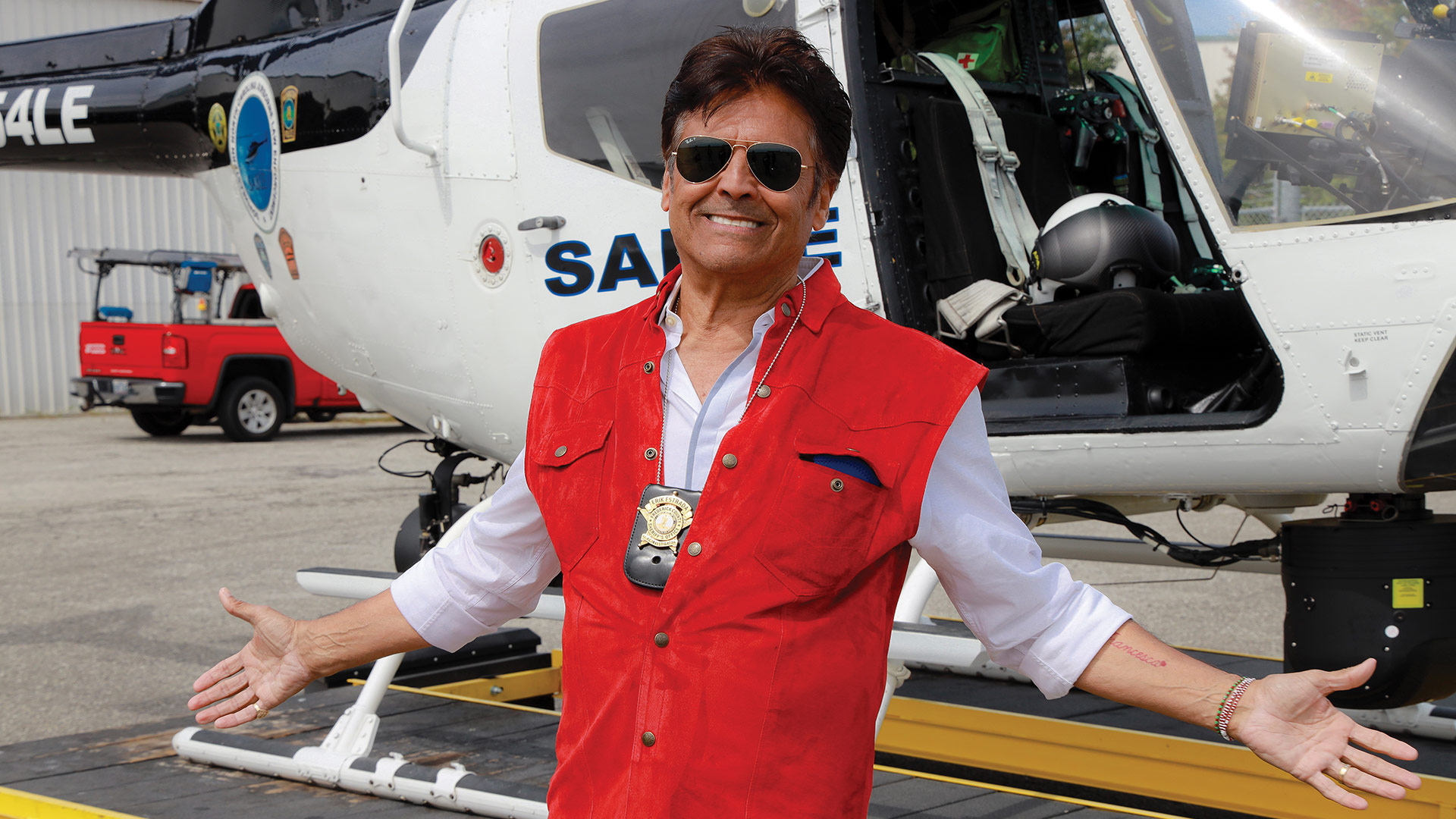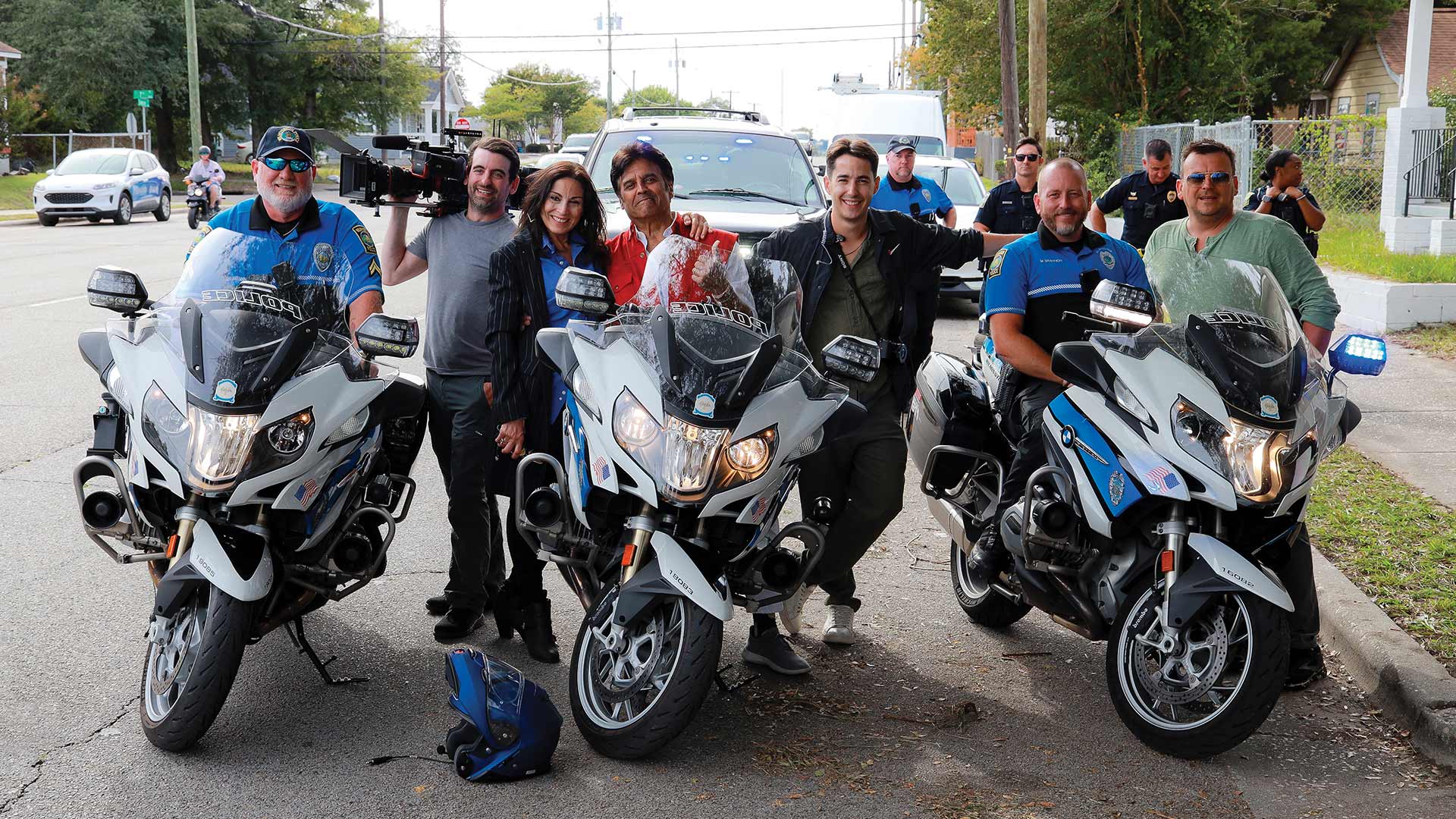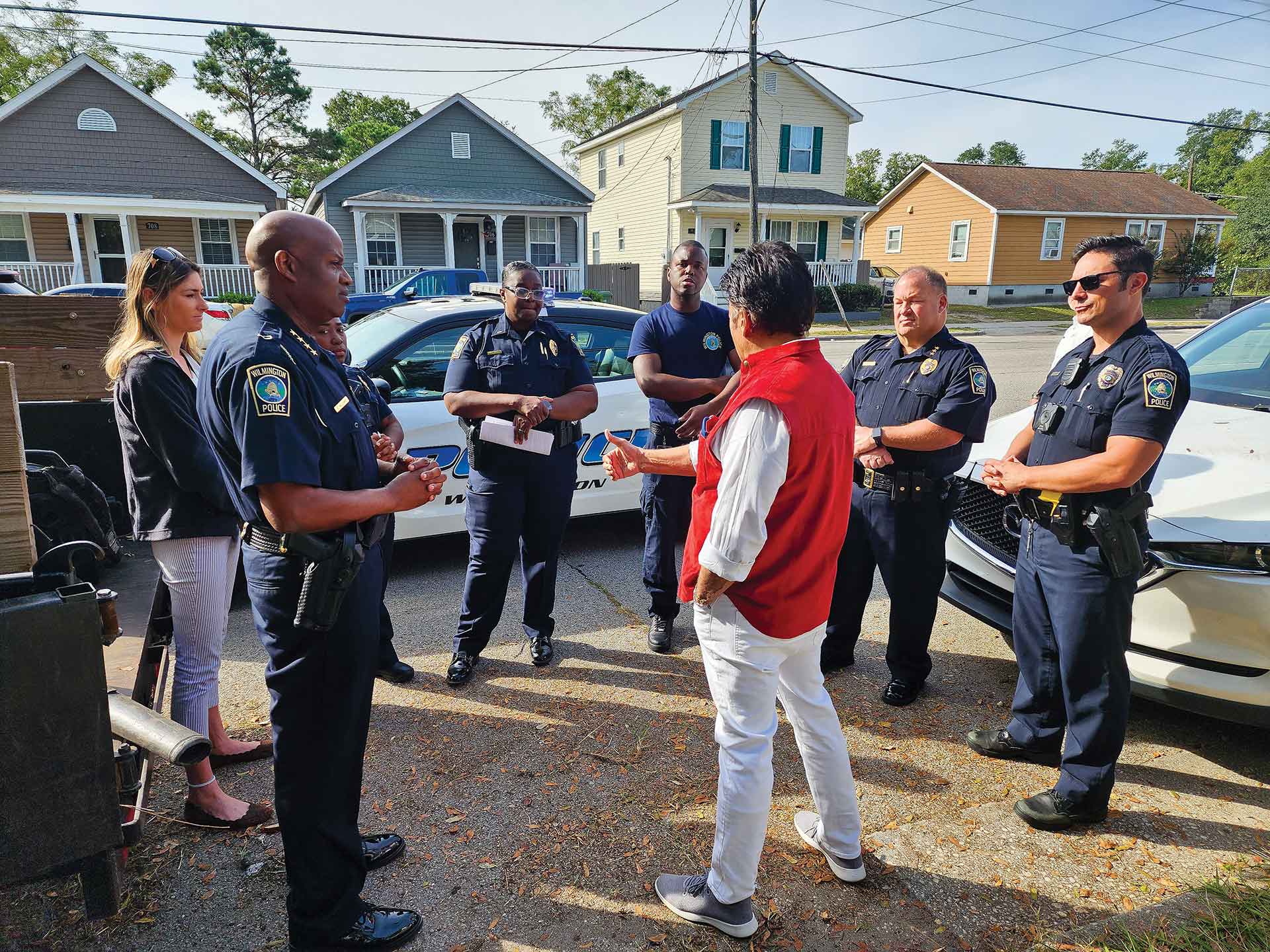
While hanging drywall or wiring a home’s electrical system may not be in his wheelhouse, Erik Estrada is thrilled to be hosting the new home rehab docuseries Divine Renovation, which is available on major streaming platforms starting on July 3 and premieres on UPtv August 1. The TV icon — who is best known for playing California Highway Patrol
Officer Frank “Ponch” Poncherello on the 1977–1983 hit series CHiPs, but has also been a deputy sheriff and reserve police officer in real life — says he was drawn to the project by its mission of helping people.
Rather than following the predictable formula of flipping one dilapidated house per episode, Divine Renovation provides smaller fixes to several family homes that make big impacts. For its first season, the show set up shop in Wilmington, North Carolina, where Estrada and producers rallied local tradesmen, volunteers and, of course, law enforcement and other first responders to lend a hand. The second season began filming in Torrington, Connecticut, in May. In a recent interview with APB, Estrada discussed his new gig and his lifelong commitment to the law enforcement community.
What appealed to you about Divine Renovation?
I’m not much of a renovator. I have attempted to put up walls, but it’s really messy. Instead, I’m very good at imagining how things should go.
Actually, [the show’s producer] Monty Hobbs knew I like to get involved in projects with Christian beliefs of kindness for our fellow man. Starting in 1977, I have lent my name to causes, like Make a Wish Foundation, that give a hand up. Monty presented me with the idea, and I thought it would be beautiful and rewarding. That’s why I’m in it; it feels good.
How is this show different from all the other home renovation shows?
What makes Divine Renovation special and different is that we’re not finding an old house and fixing it, tweaking it to be pristine. We find people who can use a hand up, like fixing a leaking roof for a veteran who didn’t have the means to repair his home. For a mom with a Down syndrome child with autism, we made the backyard safer. One gentleman we helped used to be a firefighter and suffered a traumatic brain injury. We got the fire trucks to come and give him a ride around the block and we put in a ramp for him.
Also, we got the community involved. Businesses donated stoves or air conditioners. Local churches and volunteers showed up. Now, after we leave, the community
knows where these residents are, and they have access to the community for further help.
Best of all, there’s something special in each episode, and that’s the people’s reactions. When we leave them, they are glowing from the inside and you can spot that. You get to see the glow in their eyes. That’s what is cool.

You met with some Wilmington law enforcement officers during filming, and when Season 2 began filming in May, you attended a local Back the Blue Supper fundraiser for a Torrington police officer’s son suffering from a rare disease. Why is it important to include law enforcement in this type of show?
We had local first responders who wanted to be a part of it, and we welcomed it. Most first responders and law enforcement, in my opinion, have an overdose of compassion in their DNA. That’s why they do what they do. They are genuinely giving, loving and caring individuals.
When did you know you wanted to be a member of the law enforcement community? Was it while filming CHiPs?
There were two men in my life growing up who I really respected, my grandfather and this guy named Pete Panos. At the age of 4, my mother fired my father and she started dating Panos, who was a detective in New York City. When he retired, they gave him a gold shield and I still have that gold shield.
So, from 4 to 17 years old, I wanted to be a cop. Then at 17 … I got bit by the acting bug. My mother was not happy. I told her, “If I can’t make money in this acting thing by the time I’m 30” — because 32 was the cutoff date to be in the NYPD — “I will come back and be a cop.” At 27, I got lucky playing a cop.
After CHiPs finished, I wanted to be a California Highway Patrol officer, but I was too old and the Highway Patrol didn’t take reserves. [Years later] I served as a reserve police officer in Muncie, Indiana, for three years. I then worked as a sheriff’s deputy in Virginia for seven to eight years working on an Internet Crimes Against Children task force.
We have fine men and women who do this. Plus, we need law enforcement officers: The community needs them; the world needs them. They’re not being supported and backed like they should. That’s why I’m going to be there. They’re my brothers and sisters.
Finally, what do you want viewers to take away from Divine Renovation?
Take a look at someone who can use a hand up and then look in their eyes after you’ve helped them. Enjoy the glow that comes from the heart and into their eyes.

As seen in the July 2023 issue of American Police Beat magazine.
Don’t miss out on another issue today! Click below:





